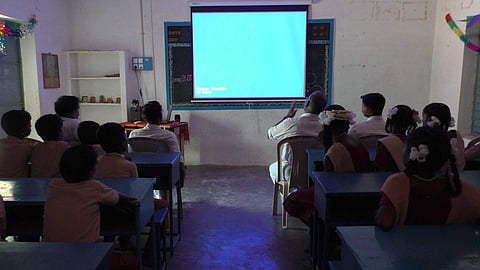Beyond chalkboards: How Punjab’s government schools are building future-ready classrooms
Government schools in Punjab are gradually embracing a new vision of education, one that moves beyond rote learning and rigid instruction to encourage skills crucial for the 21st century. As highlighted by The Tribune, this modern approach gives priority to critical thinking, creativity and adaptability, reflecting broader global trends in how young minds are prepared for future workplaces.
Central to this transformation is technology. Across several state-run schools, smart classrooms, virtual labs and digital platforms have started reshaping how lessons are delivered. From educational apps that personalise learning journeys to artificial intelligence-driven tools, these advances have made classrooms far more interactive.
Notably, ATAL Tinkering labs and dedicated AI labs have been introduced, enabling students to experiment with projects that hone their tech familiarity. A testament to this shift is the selection of 10 girls from the School of Eminence on Mall Road, who are contributing to the Indian Space Research Organisation’s (ISRO) Satellite Launch Vehicle Project by building a raspberry board (a compact, credit-card sized computer).
The Tribune also reports that the state’s public education system is fostering active, student-led exploration. This is a marked departure from the older teacher-dominated model. Through business booster initiatives and life skill modules, pupils are now encouraged to ask questions, solve problems and develop habits that support lifelong learning.
Flexibility has seeped into curricula too, with schools weaving in life skills, environmental studies, coding, financial literacy and emotional intelligence alongside core subjects. Such holistic approaches aim to open new avenues, especially in Science, Technology, Engineering and Mathematics (STEM).
Though teachers in Punjab have already engaged in international exchanges, student exposure on this scale remains an aspiration. Meanwhile, assessment systems are being rethought, combining traditional exams with project work and continuous evaluations to gauge well-rounded growth.



